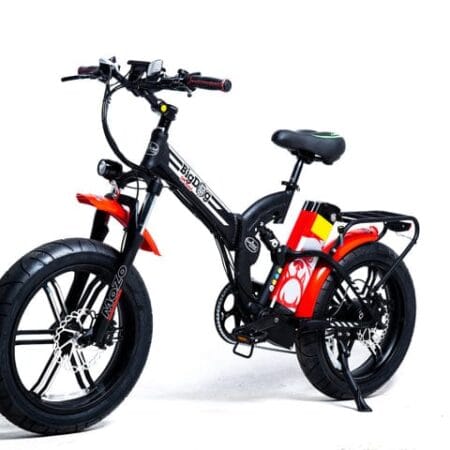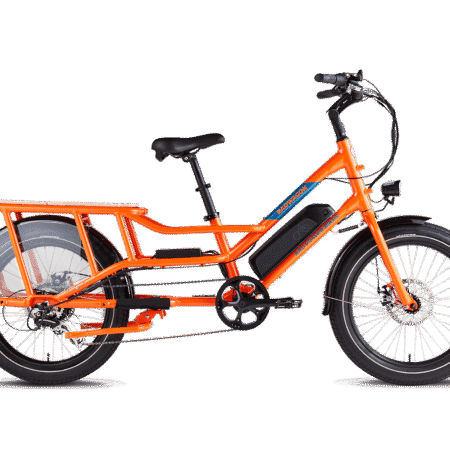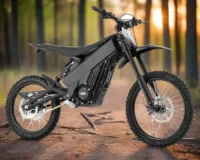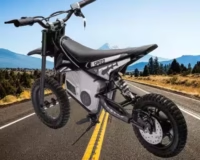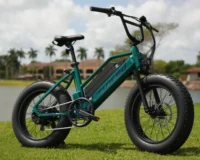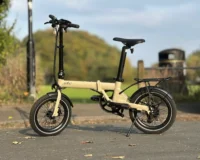The electric vehicle revolution is charging forward, captivating enthusiasts beyond just cars and scooters. Electric dirt bikes, promising silent power and thrilling off-road capabilities, have sparked the interest of many riders. Consequently, a critical question arises for those eager to explore both trails and roads: are electric dirt bikes street legal?
Unfortunately, determining if are electric dirt bikes street legal on public roads isn’t a straightforward yes or no. The answer is often entangled in a complex web of state and local regulations. While the idea of seamlessly transitioning your electric dirt bike from rugged terrain to paved streets is appealing, the reality requires a thorough understanding of specific legal frameworks and potentially significant modifications to ensure your electric dirt bike meets all requirements.
Unpacking the Legality: Why Many Electric Dirt Bikes Aren’t Initially Street Legal
To truly understand why most electric dirt bikes aren’t immediately street legal, let’s consider their inherent design. Traditional dirt bikes, and many electric dirt bikes follow this blueprint, are built for off-road environments. Their design emphasizes lightweight construction, long-travel suspension for absorbing impacts, and specialized knobby tires for optimal grip on loose surfaces. These fantastic features for tackling trails often fall short of the crucial safety and equipment standards mandated for road legality.
For any vehicle to be considered street legal, a specific set of safety features and regulatory standards must be met. These requirements are in place to protect both the rider and other road users. When we examine electric dirt bikes, we often find several key elements missing that prevent their immediate street legality. These include:
- Lighting: Street-legal vehicles, including motorcycles, require a functioning headlight with high and low beams, a taillight, and brake lights activated by both front and rear brakes. While many electric dirt bikes have basic headlights for trail riding, they frequently lack the necessary brightness, DOT approval, or separate brake light functionality. Furthermore, turn signals are a mandatory requirement in most jurisdictions for indicating turns and lane changes, impacting whether are electric dirt bikes street legal.
- Mirrors: Essential for situational awareness, rear-view mirrors are required on street-legal vehicles. Typically, at least one, and often two, mirrors providing a clear view of the road behind are necessary. Electric dirt bikes, designed for off-road agility, usually omit mirrors due to the risk of damage, a factor in determining if are electric dirt bikes street legal.
- Horn: A working horn is a vital safety feature for alerting other road users. Electric dirt bikes often do not come equipped with this essential component, which is a consideration when asking are electric dirt bikes street legal.
- Tires: The aggressive knobby tires perfect for off-road traction often lack the DOT approval and tread patterns required for safe and effective grip on paved surfaces, particularly in wet conditions. Upgrading to DOT-approved street tires is generally a prerequisite for making an electric dirt bike street legal, influencing the answer to are electric dirt bikes street legal.
- Speedometer: Monitoring speed is crucial for adhering to traffic laws. Many electric dirt bikes focused on off-road use do not include a standard speedometer, affecting their status of are electric dirt bikes street legal.
- License Plate Holder and Light: Legal operation on public roads necessitates displaying a license plate, which requires a secure holder and often illumination at night. Electric dirt bikes are not typically designed with these features, which are necessary to determine are electric dirt bikes street legal.
- Vehicle Identification Number (VIN): A unique VIN is required for registration and identification of street-legal vehicles. While most electric dirt bikes have a VIN, its acceptance for street registration varies significantly, impacting the answer to are electric dirt bikes street legal.
- Registration and Titling: Operating a vehicle legally on public roads requires registration with the state’s DMV and a title. The classification of electric dirt bikes can be ambiguous, making registration as a standard motorcycle or other street-legal vehicle a complex process when considering are electric dirt bikes street legal.
- Insurance: Most states mandate liability insurance for any vehicle on public roads. Obtaining insurance for an electric dirt bike not explicitly classified as street legal can present challenges when asking are electric dirt bikes street legal.
- Emissions Standards: While electric dirt bikes produce zero tailpipe emissions, some jurisdictions might have noise level regulations or other safety-related emissions standards that modified electric dirt bikes would need to meet, a factor in determining are electric dirt bikes street legal.
Navigating the Legal Maze: The Patchwork of State and Local Laws
The most significant obstacle in determining if are electric dirt bikes street legal lies in the inconsistent and often unclear state and local regulations.
- E-bike Classifications: Many states have established classification systems for electric bicycles (e-bikes) based on power and speed. However, electric dirt bikes, often lacking pedals and boasting higher power outputs, frequently don’t fit neatly into these existing e-bike categories. This makes determining their legal status, and thus whether are electric dirt bikes street legal, more complex.
- Motorcycle Classifications: Attempting to register an electric dirt bike as a motorcycle might be an option in some areas. However, this necessitates meeting all the stringent equipment requirements for motorcycles in that specific state, which can be extensive and costly for a vehicle primarily designed for off-road use, impacting the answer to are electric dirt bikes street legal.
- Moped/Low-Speed Vehicle Classifications: Depending on their top speed and power output, some electric dirt bikes might theoretically fall under moped or low-speed vehicle classifications in certain states. However, these categories also come with their own specific sets of equipment and registration prerequisites that many electric dirt bikes don’t initially meet, influencing whether are electric dirt bikes street legal.
- Local Ordinances: Adding another layer of complexity, individual cities and counties may have their own ordinances regarding the operation of off-road vehicles on public roads, even if a particular electric dirt bike manages to meet some state-level requirements, further complicating the question of are electric dirt bikes street legal.
The Challenging Path to Street Legality for Electric Dirt Bikes
While the majority of electric dirt bikes are not street legal right off the dealer floor, achieving street legality in some jurisdictions might be possible, albeit often a complicated and potentially expensive undertaking, making the answer to are electric dirt bikes street legal often “no” without significant effort.
- Thoroughly Research Local Laws: The absolute first and most critical step is to meticulously investigate the specific laws and regulations in your state and local area concerning the operation of electric vehicles, motorcycles, and off-road vehicles on public roads. Contacting your local DMV or law enforcement agency is highly recommended to get accurate and up-to-date information on whether are electric dirt bikes street legal in your area and what modifications are required.
- Equipping Your Electric Dirt Bike: Be prepared to invest significant time and money in adding all the legally mandated street-legal equipment. This includes DOT-approved headlights, taillights, brake lights, turn signals, rear-view mirrors, a horn, and DOT-approved street tires. You might also need to install a speedometer and a license plate holder with a light to make your electric dirt bike street legal, addressing the question of are electric dirt bikes street legal.
- Modifying the Electrical System: Ensuring all the newly added lighting and accessories are properly powered and meet DOT standards might necessitate modifications to your electric dirt bike’s electrical system. This can involve wiring changes and ensuring sufficient power output, a crucial step in determining are electric dirt bikes street legal.
- Vehicle Inspection: Once all the necessary modifications are completed, your state might require a thorough vehicle inspection by authorized personnel to verify compliance with all safety standards before your electric dirt bike can be deemed street legal, providing a definitive answer to are electric dirt bikes street legal.
- Navigating Registration and Titling: The process of registering and titling a modified electric dirt bike can be particularly challenging, as it might not neatly fit into existing vehicle categories. Be prepared for potential bureaucratic hurdles and extensive paperwork when trying to make your electric dirt bike legal for road use, a key factor in understanding are electric dirt bikes street legal.
- Securing Insurance: Obtaining insurance for a home-modified electric dirt bike that wasn’t originally designed for street use can also be difficult. Insurance companies might have specific requirements and classifications for insuring street-legal motorcycles or similar vehicles, and your modified electric dirt bike might not easily fit those categories, influencing the answer to are electric dirt bikes street legal.
Electric Dirt Bikes That Blur the Lines: Dual-Sport Options
It’s important to note that a growing segment of the electric motorcycle market features “dual-sport” models. These electric motorcycles are specifically designed and manufactured to be both capable off-road and fully street legal from the factory. They come equipped with all the necessary lighting, mirrors, and DOT-approved components. However, these are typically classified and priced as electric motorcycles, not as traditional electric dirt bikes that require aftermarket modifications for street legality, offering a clear path to street legal electric riding, unlike many standard electric dirt bikes.
The Final Verdict: Are Electric Dirt Bikes Street Legal?
Currently, the vast majority of electric dirt bikes are not street legal in most jurisdictions without substantial modifications and navigating a complex web of legal requirements. While the vision of a silent, electric off-road machine doubling as a commuter is appealing, riders must exercise due diligence in researching their local laws and understanding the potential challenges and costs associated with making an electric dirt bike street legal, ultimately answering the question of are electric dirt bikes street legal with a cautious “generally no, without significant effort.”
The most prudent advice is to always prioritize safety and legality. Enjoy the off-road capabilities of your electric dirt bike on private land, designated trails, and OHV parks unless you have definitively verified and fully complied with all the specific street legal requirements in your local area. Ignoring these regulations can result in fines, vehicle impoundment, and, most importantly, jeopardize your safety and the safety of others. As the electric vehicle landscape continues to evolve, we may see clearer regulations and potentially new vehicle classifications emerge for electric dirt bikes, but for the time being, understanding and adhering to the existing rules of the road is paramount when considering are electric dirt bikes street legal.


